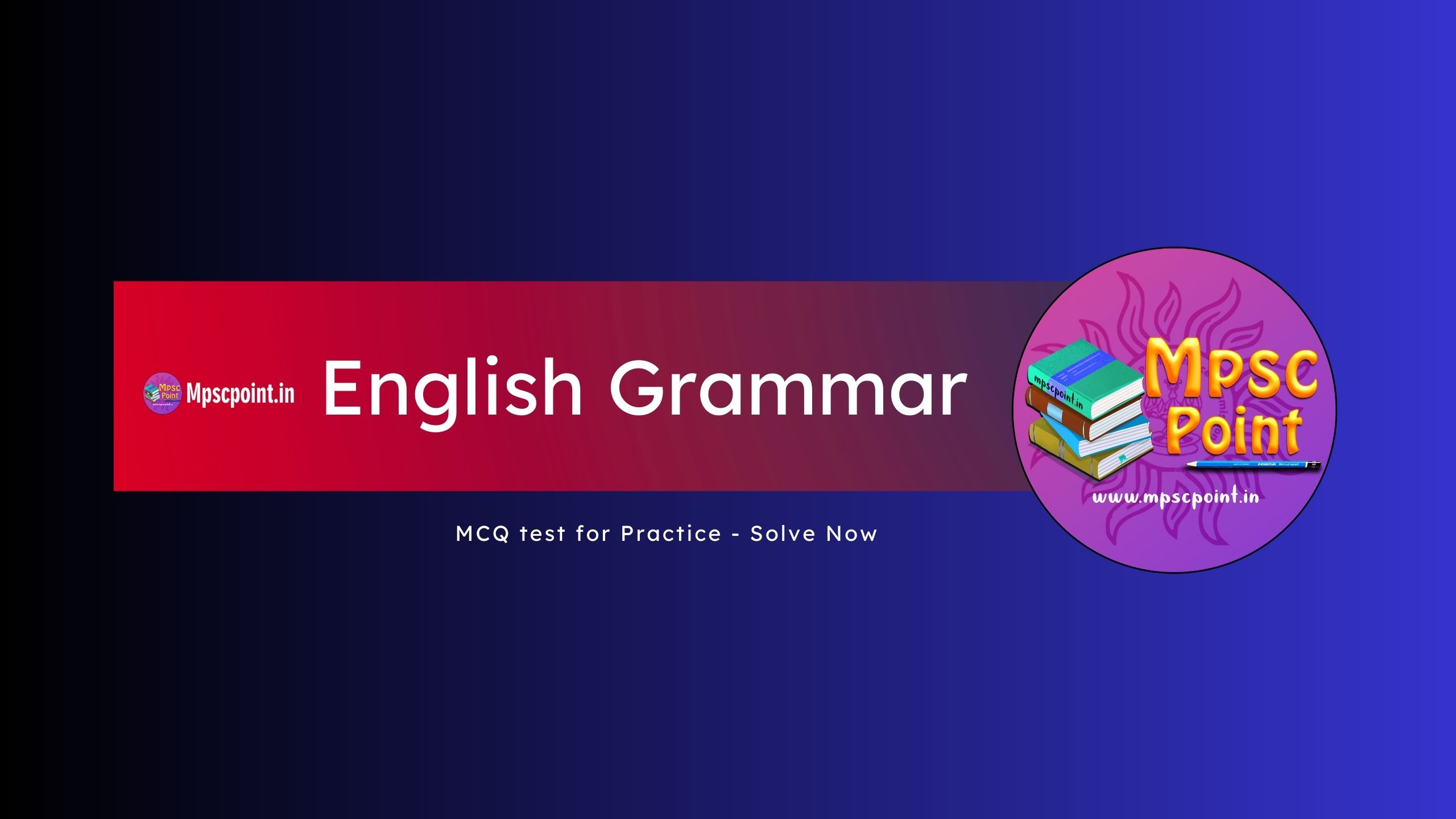English grammar MCQ test multiple choice questions: Tets 3 English is the universal language which is used world wide. Knowing the English grammar is the best thing. If you are preparing for any government exam or private sector exam then English grammar is always there to study. You can master this subject by practicing MCQs. Basically multiple choice questions are the questions in which you will have few options to answer and select from that options
English Grammar MCQ Test
In India almost every exam has the subject to study.English grammar refers to the set of rules and principles that govern the structure of the English language. It outlines the proper arrangement of words, phrases, clauses, and sentences to create meaningful and coherent communication. Understanding grammar is essential for effective writing, speaking, and understanding English. That’s why it is important to know English grammar very well. You can analyse your knowledge with help of MCQs and quizzes. That’s why I am providing you some MCQs related to English grammar. By solving this MCQ you will get an idea about how questions are form on English grammar
Useful for the following exams
These multiple choice questions are useful for various examination in India and all the states. You can practice this quiz for free for the following examinations
UPSC, other state PSC, MPSC, MPPSC, KPSC, UPPSC and other state government exams, SSC Staff Selection Commission, Maharashtra Public Service Commission, Talathi Bharti, forest Guard Bharti, SSC MTS Bharti, SSC CHSL, SSC CGL, SSC CPO etc
Solve English Grammar Test no 2
Some questions for an English grammar test. Please answer each question to the best of your ability. Once you’re done, I’ll provide you with the correct answers. Let’s get started
Test Questions are given below
QUESTIONS
[qsm quiz=1]
Key components of English grammar include:
- Parts of speech: These are the basic building blocks of sentences and include nouns, pronouns, verbs, adjectives, adverbs, prepositions, conjunctions, and interjections.
- Sentence structure: How sentences are constructed using subjects, predicates, objects, and various types of phrases and clauses.
- Tenses: English has different verb tenses (e.g., past, present, future) that indicate the time of an action or state.
- Agreement: Ensuring that subjects and verbs, as well as pronouns and antecedents, agree in number and person.
- Articles and determiners: Understanding how articles (a, an, the) and other determiners (e.g., this, that, these, those) modify nouns.
- Syntax: The arrangement of words to form grammatically correct sentences and phrases.
- Punctuation: The use of marks like periods, commas, question marks, and exclamation points to clarify the meaning and structure of sentences.
- Voice: Understanding active and passive voice and when to use each.
- Modal verbs: Verbs that express ability, possibility, permission, necessity, and other attitudes.
- Conditionals: Sentence structures used to express hypothetical or conditional situations.
- Reported speech: Converting direct speech to indirect speech.
Solve more English Grammar Tests
Below I have provided the detailed links for the next test so that you can solve them easily. The pattern will be same. The number of question may vary. (You will see the links below this post)
| English Grammar Test 1 | English Grammar Test 2 |
| English Grammar Test 3 | English Grammar Test 4 |
| English Grammar Test 5 | English Grammar Test 6 |
| English Grammar Test 7 | English Grammar Test 8 |
| English Grammar Test 9 | English Grammar Test 10 |
Thank you so much or visiting this page of our site mpscpoint.in I hope this test must have helped you.
The basic parts of speech in English are nouns, pronouns, verbs, adjectives, adverbs, prepositions, conjunctions, and interjections.
“Your” is a possessive pronoun, indicating possession (belonging to someone). “You’re” is a contraction of “you are.”
Commas are used to separate items in a list, set off introductory phrases, join independent clauses with a coordinating conjunction, and for other specific punctuation rules.
Modal verbs are auxiliary verbs that express ability, possibility, permission, necessity, and other attitudes. Examples include “can,” “could,” “may,” “might,” “should,” “must,” etc.
